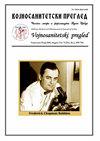神经反馈训练对听觉诱发电位后期成分反应时间的影响:一项安慰剂对照研究
IF 0.2
4区 医学
Q4 MEDICINE, GENERAL & INTERNAL
引用次数: 0
摘要
背景/目的。感觉运动节奏(SMR)神经反馈训练有助于提高认知能力,增加注意力。当一个人专注并以任务为导向时,SMR的权力就会增加。P300诱发电位反应时间越短,注意力越好。因此,在NFB小动作小动作训练后,小动作小动作能力的增加应该会减少认知任务的反应时间。本研究旨在检查健康个体在20天的神经反馈(NFB)训练期间在12 - 15 Hz之间调节感觉运动(SM)脑电图活动节律的能力。此外,研究了NFB感觉运动节奏训练对反应时间(RT)的影响。方法。参与者被分为对照组和实验组,共有24名受试者(12名男性),年龄在25至40岁之间。实验组采用真实SM节奏NFB训练,对照组采用虚假(安慰剂)训练。在NFB训练前、训练第5次、第10次和第20次训练后以及最后一次训练后1个月分别记录听觉诱发电位(AEPs)。结果。结果表明,连续20次的SM节奏NFB训练可以提高SM节奏的幅度。实验组RT明显缩短,对照组无明显缩短。同时,SM节律的脑电图信号功率的增加与RT呈负相关,但仅在男性受试者的一个亚组中存在。结论。结果表明,NFB训练对以反应时间表达的注意过程的改善有一定的影响。本文章由计算机程序翻译,如有差异,请以英文原文为准。
Effect of neurofeedback training on auditory evoked potentials’ late components reaction time: A placebocontrol study
Background/Aim. Sensorimotor rhythm (SMR) neurofeedback training contributes to improving cognitive performance, increasing attention. SMR power is increased when a person is focused and task-oriented. The shorter reaction time of the P300 evoked potentials (AEPs) are associated with better attention. Hence, the increase in SMR power after NFB SMR training should decrease the reaction time in a cognitive task. This study aimed to examine the ability of healthy individuals to modulate the sensorimotor (SM) rhythm of electroencephalographic activity between 12 and 15 Hz during 20-day neurofeedback (NFB) training sessions. In addition, the effect of NFB sensorimotor rhythm training on reaction time (RT) was investigated. Methods. Participants were divided into control and experimental groups, with 24 subjects (12 males) aged between 25 and 40 years. Participants in the experimental group were trained with authentic SM rhythm NFB training, while in the control group false (placebo) training was applied. Auditory evoked potentials (AEPs) were registered on 5 occasions: before NFB training, after 5, 10, and 20 training sessions, and one month after the last training. Results. The results showed that a series of 20 SM rhythm NFB training increases the amplitudes of the SM rhythm. RT in the experimental group was significantly shortened, while in the control group it was not observed. Also, the increase in the power of the EEG signal of the SM rhythm showed a negative correlation with RT, but only in a subgroup of male subjects. Conclusion. The obtained results indicate the effects of NFB training on the improvement of the attention process expressed by reaction time.
求助全文
通过发布文献求助,成功后即可免费获取论文全文。
去求助
来源期刊

Vojnosanitetski pregled
MEDICINE, GENERAL & INTERNAL-
CiteScore
0.50
自引率
0.00%
发文量
161
审稿时长
3-8 weeks
期刊介绍:
Vojnosanitetski pregled (VSP) is a leading medical journal of physicians and pharmacists of the Serbian Army. The Journal is published monthly.
 求助内容:
求助内容: 应助结果提醒方式:
应助结果提醒方式:


